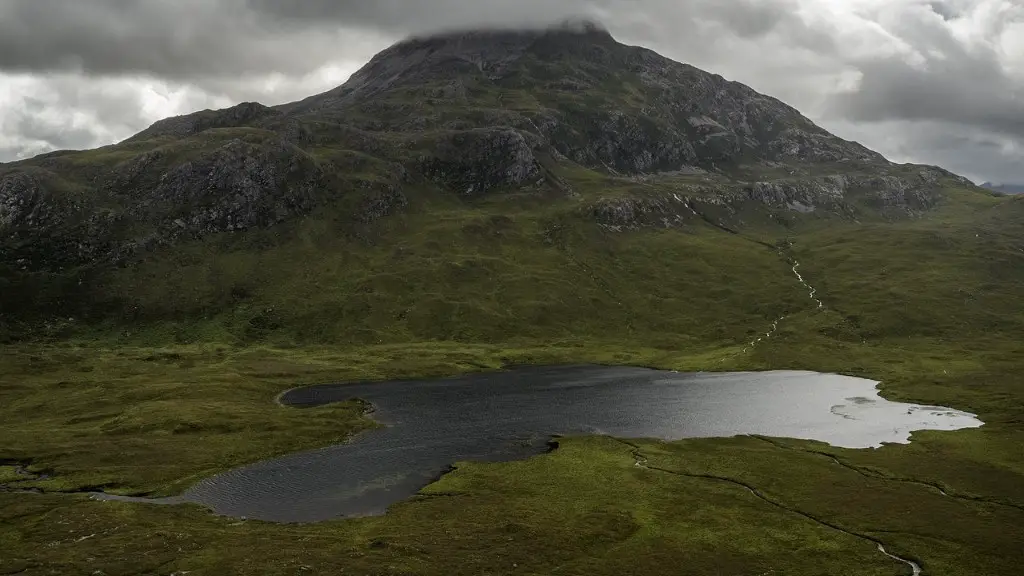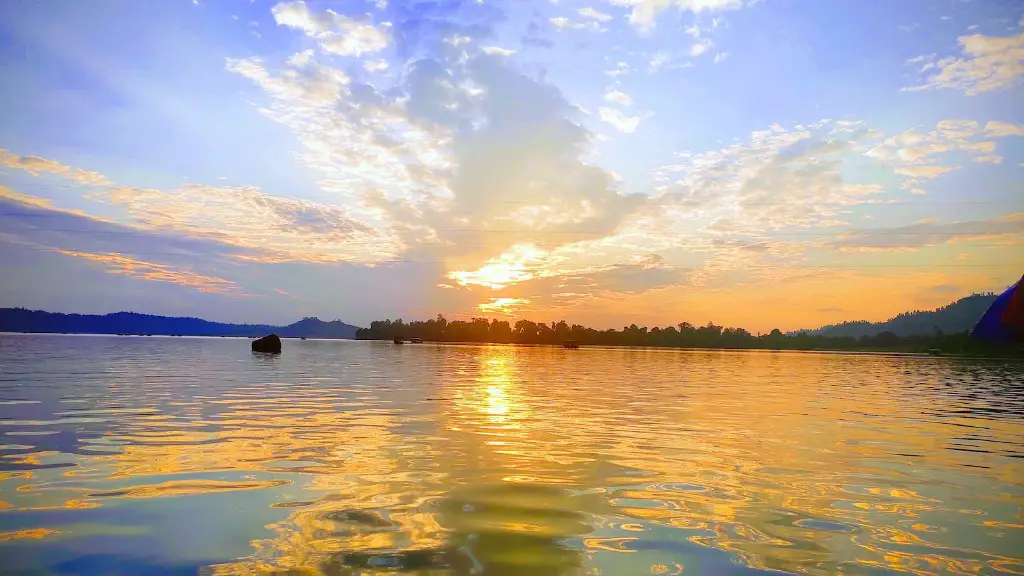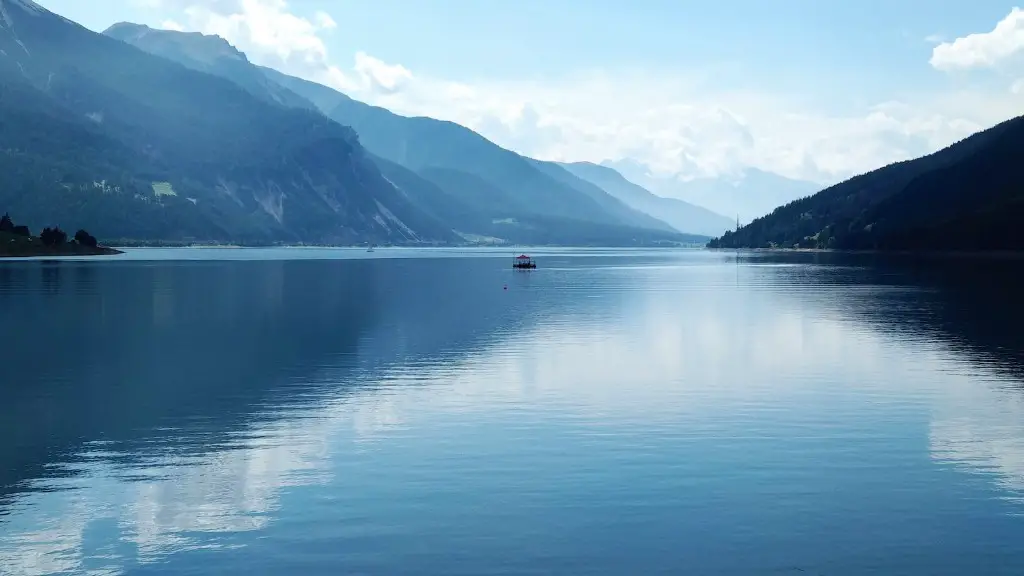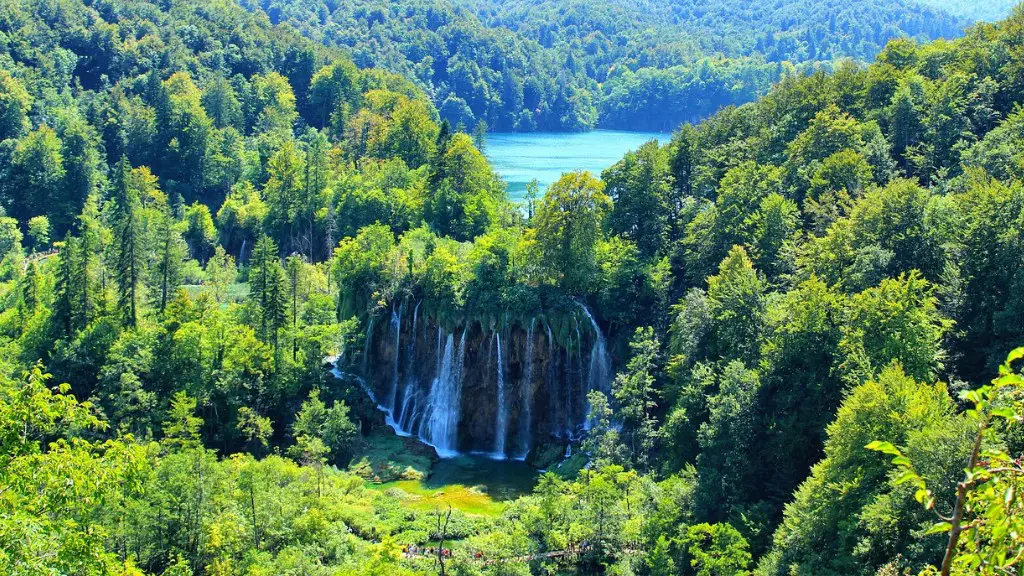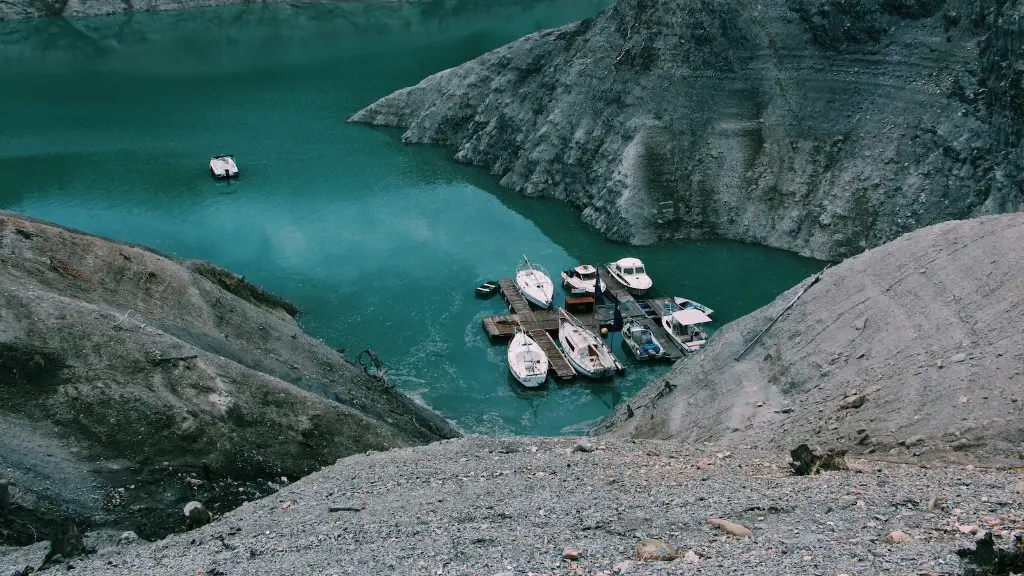Where Is Lake Baikal Located In What Country
Lake Baikal is the deepest and oldest freshwater lake in the world, located in the southeastern part of Russia near the Mongolian border. The lake is centrally located in the Russian part of the Baikal mountain range and is surrounded by majestic mountain peaks, forests, and deep canyons. Due to its unique geography and breathtaking surroundings, the lake has earned its place as a UNESCO World Heritage Site.
The lake was formed more than 25 million years ago, making it one of the oldest lakes in the world. It covers an area of 31,500 km, making it the largest freshwater lake in the world. Its deepest point measures to almost 1,700 meters, making it the deepest lake in the world. The lake holds 20% of the world’s unfrozen freshwater, making it a powerful source of life and biodiversity.
The lake itself is fed by over 300 rivers, highlights of which include the Barguzin and Selenga rivers which together account for 60% of the lake’s water. Not only is the lake home to the largest number of fish species in the world, but it is also home to over three thousand species of plants, some of which can only be found in the lake. Scientists even believe that the lake contains species that were yet to be discovered.
What makes Lake Baikal so special is its unique geography with its pristine landscapes, huge size, and water volume. Restoration efforts have been taken to reduce the negative impact of pollution through various environmental organizations and the government over the last decades. The lake has been well known by locals for centuries, and it has now gained international recognition as a valuable resource and an invaluable part of our planet’s bio-diversity. Its beauty, size, and age have earned it the title of “the Pearl of Siberia.”
Lake Baikal offers some of the best experiences in nature, as it is home to an array of wildlife and offers breathtaking scenes of its countryside. The winter has its own set of adventures with the opportunity to ice skate on the lake and take tours of the area to experience the beauty of Siberia in the winter.
The Supernatural Wonders Of Lake Baikal
Lake Baikal carries much more than the name of “Pearl of Siberia”; It is a unique natural wonder of our world. The lake is regarded as sacred by many locals and visitors to the lake giving it an almost supernatural element.The lake remains frozen for a majority of the year, remaining frozen until late April, allowing visitors to explore a different type of terrain not found anywhere else. The lake is a source of healing, as many of its visitors will report that the lake itself brings calmness and peace to those who venture near.
There are many supernatural elements of the lake, from the ancient myths and stories that were presented to its inhabitants years ago, to the colourful sunsets that are unique to the area. Some of the locals even say that Olkhon Island, the largest Island located in the middle of the lake, is home to some spiritual force. A place of true enchantment and mystery, the lake is said to be the gateway to some supernatural force beyond the understanding of man.
Many travellers report that the lake has an uncanny ability to bring calmness and serenity to one’s life. People report that they gain a sense of joy, harmony, and rejuvenation when they spend time near the lake. Its effects are both psychological and spiritual, making it a wonderful place to spend some time and get in touch with nature on a personal level.
Nature and wildlife enthusiasts can take pleasure in the Lake’s abundance of landscapes and wildlife. From the faint calls of the rare Baikal seal, to the rows of eagles resting on Olkhon Island, wildlife watching is a wonderful experience at Lake Baikal. The lake is also a host to an array of endangered species, from the nerpa Baikal seal to over 50 species of fish found only in the lake’s waters.
Environmental Impact of Lake Baikal
The lake’s unique environment is under constant threat from the origins of air and water pollution. Baikal is known for the purity of its freshwater, so it is an unfortunate consequence that the lake is suffering from pollution from human-caused sources, such as industry and agriculture. As a result, the lake’s biodiversity is endangered.
One of the most serious threats to the lake is the introduction of foreign fish species to the lake’s ecosystem as a result of overfishing. Invasive species are a huge threat to the lake’s native fish species. Scientists are monitoring and researching the lake’s ecosystem in an effort to save the lake and its natural inhabitants from the effects of overfishing.
Pollution and overfishing are the two largest threats to the lake. Other factors, such as climate change and melting permafrost, are also causing some damage to the lake’s delicate environment. Climate change affects the lake’s temperature and can lead to altered water levels, which can be harmful to the lake’s biodiversity.
Conservation efforts are crucial for the preservation of this World Heritage Site. Both Russia and Mongolia are working together to protect the lake, and many local and international organizations are committed to its conservation. The government has implemented laws to protect the environment of the lake, such as the complete ban on industrial fishing which was recently put in place by the regional government of Irkutsk.
Tourism in Lake Baikal
Tourism to Lake Baikal is an exciting and rewarding activity, giving visitors the chance to experience its breathtaking landscape firsthand. The lake’s pristine waters and majestic surroundings offer stunning photo opportunities, allowing visitors to take stunning pictures to bring back home with them.
In addition to its stunning nature, there is also the chance to try some of the local activities. Visitors can go fishing, take boat tours, and explore some of the local tribes and heritage of the region. The area is also known for its traditional cuisine and rich culture, with its locals offering a variety of local dishes and drinks for visitors to try.
The area offers a wide range of activities, from boat trips to skiing around the lake. Nature and wildlife enthusiasts can enjoy the unique flora and fauna found from the lake’s shores, and there are also many cultural activities to be experienced in the local settlements and remote areas.
Lake Baikal is a unique area of Russia and one that offers visitors the chance to experience a truly special landscape. Its beauty, size, and age have earned it the title of “the Pearl of Siberia” and make it a must-see destination in Russia.
Lake Baikal in the Future
The future of Lake Baikal is uncertain as the lake faces a range of threats from governmental negligence and political influences. Conservation efforts such as the complete fishing ban and the continued protection from over-development are necessary to ensure its future as a unique and important World Heritage site.
Scientists are continuing to monitor the lake’s wildlife, with the aim to reduce the number of endangered species and to create a sustainable future for the lake. The government is also introducing laws to curb the amount of pollution and development that is a threat to the delicate environment of the lake.
The future of the lake is in our hands, and it is up to us to ensure its continued existence. There is hope that with the continued efforts of conservationists, the lake will remain a World Heritage site and a UNESCO Heritage of Humanity in the future.
The Local Culture of Lake Baikal
Lake Baikal is home to a diverse and vibrant culture that is unique to the region. It is home to many local tribes of indigenous people, many of which practice their ancient traditions and customs. These local tribes live in small settlements around the lake’s shores and draw much of their wealth and livelihood from the lake itself.
The surrounding villages are home to numerous markets and festivities, where locals provide traditional dishes and produce for visitors to sample. Cultural events such as the fishing festivals, puppet shows, and local theatricals are all part of the unique culture of the lake and provide fascinating insight into the local customs.
For visitors, experiencing the local culture of the lake is a must. There are numerous opportunities to attend cultural events and experience the local cuisine, giving visitors a chance to explore a fascinating and diverse culture in an untamed and pristine environment.
Conclusion
Lake Baikal is one of the most stunning and unique places on our planet. Its vast size, age and biodiversity have earned it the nickname “the Pearl of Siberia”, while its conservation efforts have made it an invaluable resource to our planet’s environment. Its beauty and mysteries have captivated locals and visitors alike, and its future remains in our hands.
